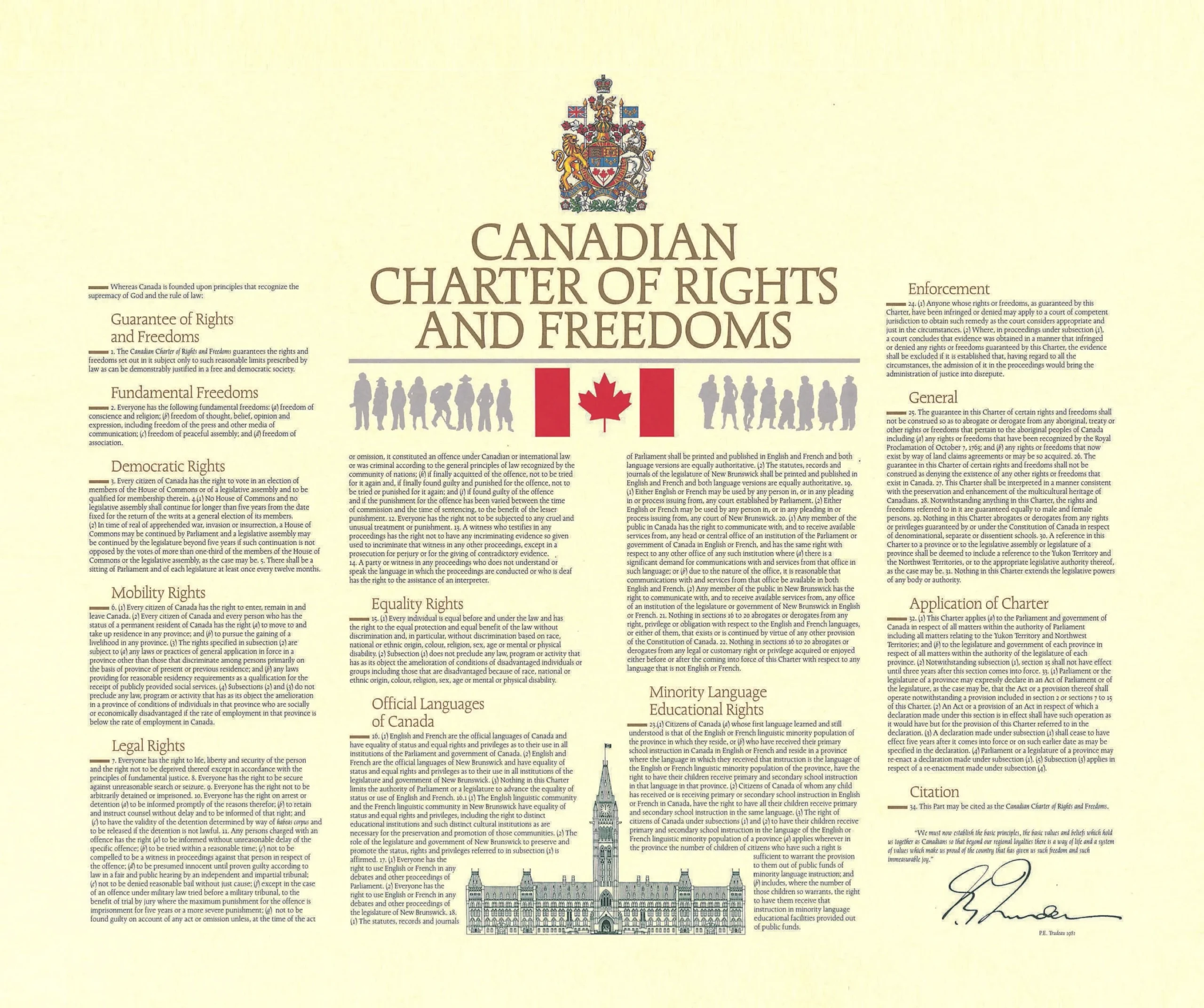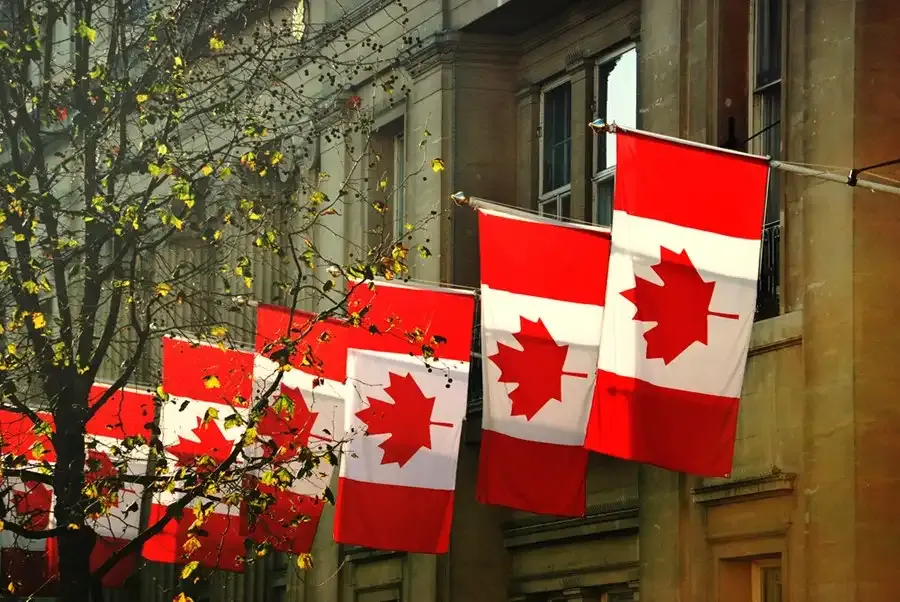The Most Important Rights Every Canadian Should Know

These most important rights empower individuals, ensuring dignity, equality, and freedom in a diverse nation.
Canada’s legal framework, anchored by the Canadian Charter of Rights and Freedoms (1982), offers citizens a robust shield of liberties.
Yet, many Canadians remain unaware of the full scope of their protections, leaving them vulnerable in moments of need.
This article unpacks the essential rights every Canadian should understand, weaving their significance into daily life with clarity and purpose.
Why should you care?
Because knowing your rights isn’t just empowerment—it’s a responsibility.
Understanding your rights helps foster a culture of respect and accountability, not just among citizens but also within institutions that uphold these rights.
Freedom of Expression: The Voice of a Nation
Imagine a Canada where your opinions, however bold, could land you in trouble.
Freedom of expression, enshrined in Section 2(b) of the Charter, prevents that reality.
This right allows Canadians to share ideas, critique policies, and engage in public discourse without fear of censorship.
It’s the lifeblood of democracy, enabling everything from protest marches to social media debates.
Consider Sarah, a Vancouver-based artist who sparked a city-wide conversation with her mural critiquing climate policies.
Her work, though controversial, was protected because it expressed a viewpoint.
This right isn’t absolute—hate speech and defamation face limits—but it’s a cornerstone of open dialogue.
A 2023 survey by the Angus Reid Institute found that 68% of Canadians value free speech highly, yet only 45% feel confident defending it.
This gap underscores the need to understand and champion this liberty actively.
Moreover, the rise of digital platforms has transformed how freedom of expression is exercised, presenting new challenges and opportunities for advocacy.
| Aspect | Details |
|---|---|
| Right | Freedom of Expression |
| Section | 2(b) of the Charter |
| Scope | Speech, writing, art, protests |
| Limits | Hate speech, defamation, incitement |
Equality Rights: A Level Playing Field
Discrimination erodes trust in society, but Section 15 of the Charter counters it by guaranteeing equality before the law.
This right prohibits discrimination based on race, gender, disability, or other grounds, fostering inclusivity.
It’s one of the most important rights because it ensures every Canadian, regardless of background, has a fair shot.
Take the case of Amir, a Toronto software developer denied a promotion due to his visible disability.
By invoking his equality rights, he challenged the decision, leading to workplace reforms.
Courts have expanded this right over time, notably in cases like Vriend v. Alberta (1998), which extended protections to sexual orientation.
Equality isn’t just a legal promise—it’s a societal commitment to fairness.
Yet, challenges persist.
Systemic biases in hiring, policing, and education demand vigilance.
Engaging with this right means questioning: Are we truly equal if outcomes vary by identity?
+ The Pros and Cons of Living in Canada in 2025
Mobility Rights: Freedom to Roam
Canada’s vastness is both a gift and a challenge.
Section 6 of the Charter grants mobility rights, allowing citizens to live, work, and travel anywhere in the country.
This right dismantles provincial barriers, ensuring economic and personal freedom.
It’s among the most important rights for a nation where opportunity often lies beyond one’s hometown.
For instance, when Lisa, a nurse from Nova Scotia, moved to Alberta for better job prospects, her credentials were recognized, thanks to mobility protections.
This right also includes the freedom to leave and return to Canada, a safeguard for global citizens.
However, during the COVID-19 pandemic, interprovincial travel restrictions tested these liberties, raising debates about their limits.
| Aspect | Details |
|---|---|
| Right | Mobility Rights |
| Section | 6 of the Charter |
| Scope | Live, work, travel across provinces |
| Limits | Reasonable restrictions (e.g., public health) |
As discussions about mobility rights continue, the importance of balancing public health and individual freedoms remains a critical topic in Canadian society.

Legal Rights: Your Shield in Crisis
When facing legal trouble, Section 7’s legal rights become your lifeline.
These include the right to life, liberty, and security, ensuring fair treatment by the justice system.
Among the most important rights, they protect against arbitrary detention and ensure due process.
Picture a scenario where you’re wrongfully arrested.
Your right to a fair trial (Section 11) and protection against unreasonable searches (Section 8) kick in.
These safeguards aren’t abstract—they’re practical tools.
In 2024, the Supreme Court’s ruling in R. v. Bykovets clarified digital privacy, reinforcing protections against unwarranted data searches.
This evolving right reflects Canada’s adaptation to modern challenges like technology.
Furthermore, understanding legal rights empowers citizens to advocate for themselves and others, creating a more just society.
Indigenous Rights: A Foundational Promise
Indigenous rights, rooted in Section 35 of the Constitution Act, 1982, stand apart as a commitment to reconciliation.
These rights affirm Aboriginal title, treaty obligations, and cultural preservation, making them some of the most important rights for Indigenous communities.
They’re not just legal provisions—they’re a moral compass for Canada’s future.
The 2015 Truth and Reconciliation Commission’s findings highlighted that 94% of Indigenous Canadians view these rights as critical to self-determination.
Yet, disputes over land and resources, like the Wet’suwet’en pipeline conflict, show implementation lags.
Recognizing these rights means acknowledging Canada’s colonial past while building equitable partnerships.
Efforts to support Indigenous rights can lead to greater societal understanding and healing, fostering a more inclusive national identity.

The Analogy of a House
Think of your rights as a house.
The Charter is the foundation, sturdy and enduring.
Each right—expression, equality, mobility—is a room, offering unique protections.
But a house needs maintenance.
Neglect your rights, and cracks form; defend them, and the structure thrives.
This analogy reminds us that rights require active engagement, not passive reliance.
Regularly participating in civic activities, such as community meetings and advocacy groups, helps reinforce the importance of rights in our society.
Democratic Rights: Power in Your Hands
Section 3 of the Charter guarantees the right to vote and run for office, placing democracy in every citizen’s hands.
These are among the most important rights because they shape Canada’s governance.
Voting isn’t just a privilege—it’s a tool to influence policy, from healthcare to climate action.
In the 2021 federal election, voter turnout was 62.3%, per Elections Canada, signaling room for improvement.
Low engagement risks diluting this right’s power.
Whether it’s municipal or federal, your vote is a direct line to change.
Ask yourself: If you don’t shape the future, who will?
Efforts to increase voter participation, especially among youth and marginalized communities, are essential for a vibrant democracy.
Language Rights: Unity in Diversity
Canada’s bilingual identity shines through Sections 16–23, which protect English and French language rights.
These ensure access to federal services, education, and courts in either language, making them vital most important rights for linguistic minorities.
In Quebec, francophones thrive; in New Brunswick, Acadians flourish.
Challenges arise when access falters, as seen in debates over French-language schools in Ontario.
These rights aren’t just legal—they’re cultural bridges, fostering unity in a mosaic nation.
Protecting them means valuing Canada’s dual heritage.
Promoting awareness and education about language rights can strengthen Canada’s commitment to multilingualism and cultural diversity.
For more information on language rights in Canada, you can visit Canadian Heritage.
Why Rights Matter Now
In 2025, Canada faces new pressures: digital privacy threats, economic inequality, and climate-driven migration.
The most important rights aren’t static; they evolve with society.
Engaging with them means staying informed, voting, and challenging injustices.
Ignorance of your rights hands power to others—knowledge reclaims it.
This isn’t just about laws—it’s about identity.
Canada’s commitment to freedom, fairness, and inclusion defines its global reputation.
By understanding and defending these rights, you strengthen the nation’s fabric, ensuring it remains a beacon of hope.
As the landscape of rights continues to shift, active participation in civil society will be crucial for safeguarding these freedoms for future generations.
